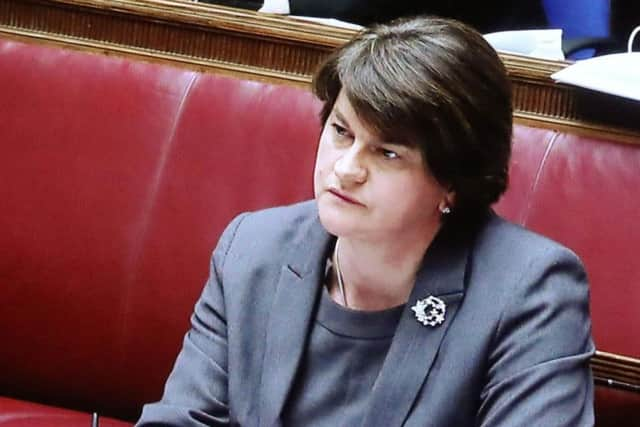Vast cut to 20-year RHI subsidy will see payments collapse
and live on Freeview channel 276
While Arlene Foster was the responsible minister, the Renewable Heat Incentive scheme was disastrously set up as a ‘burn to earn’ subsidy which provided an uncapped incentive for the use of biomass boilers which was higher than the cost of wood pellet fuel.
The emergence of that gross incentive to damage the environment in what was meant to be an environmentally friendly scheme was the catalyst for the collapse of Stormont amid a series of lurid allegations about the behaviour of some senior DUP figures.
Advertisement
Hide AdAdvertisement
Hide AdIn January 2017, in the dying days of the Assembly, the DUP rushed legislation through Stormont which retrospectively cut the payments which boiler owners receive.


That was only meant to last for one year but was then extended for a second year to allow civil servants more time to come up with a permanent solution.
Now, on the eve of the legislation expiring at the end of next month, the Department for the Economy has published its long-term proposal for the scheme.
With no legislature in Belfast, the department is now hoping that Secretary of State Karen Bradley will take the legislation through Westminster in what would be another act of direct rule.
Advertisement
Hide AdAdvertisement
Hide AdBecause civil servants have taken so long to come up proposals, the legislation now must be passed suddenly with limited democratic scrutiny - or else most payments under the scheme would no longer have any statutory basis.
Although it is known that there was abuse of the scheme, the department has still not inspected every boiler to establish if it is being operated legitimately. However, most of those on the scheme were operating legitimately, entering a scheme which the government promoted to them and which Mrs Foster personally guaranteed would never be altered retrospectively.
What civil servants - who are now operating without any democratic accountability - have published will mean further radical retrospective cuts to what claimants receive.
Tariffs for 99kwh boilers - the overwhelming choice because it was the most lucrative - which at the end of 2016 were 6.5p/kwh will now be slashed to 1.7p. But that rate will only be paid for the heat produced if the boiler is run for 15% of the year. Any use beyond that will receive no subsidy.
Advertisement
Hide AdAdvertisement
Hide AdUnder the old scheme, there was a perverse incentive to waste heat by running the boiler round the clock. Individuals who rarely turned off their boiler during a year would have received more than £50,000.
Calculations from the Renewable Heat Association, which represents the majority of boiler owners, show that under the original scheme a boiler owner who ran their boiler for about half the year - usage which is not uncommon for poultry farmers or others who have high heat needs - would have received almost £30,000.
Under the retrospective cut to subsidies which the DUP rushed through Stormont in January 2017 that fell to just over £13,000.
But under the current proposals, that individual would see their payments fall to just over £2,000 a year.
Advertisement
Hide AdAdvertisement
Hide AdBy contrast, biomass boiler owners in the rest of the UK are receiving vastly higher subsidies. And the Republic of Ireland is about to launch a renewable heat incentive which will also involve subsidies which are massively more generous than what Stormont is now proposing.
* See Wednesday’s News Letter for full reports and analysis